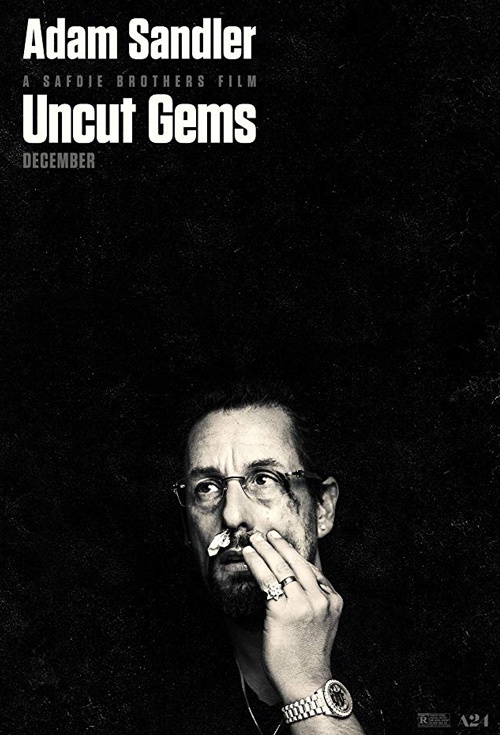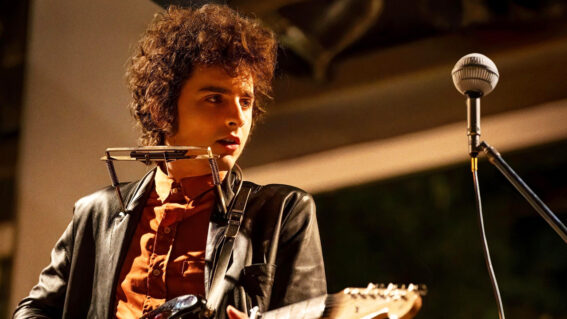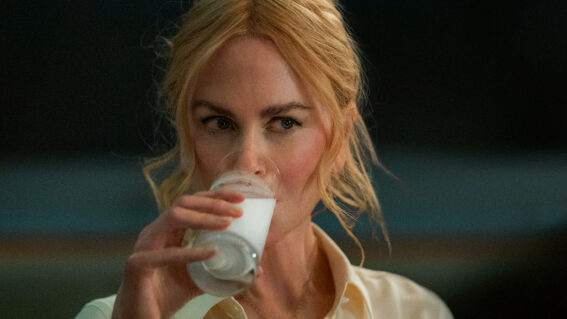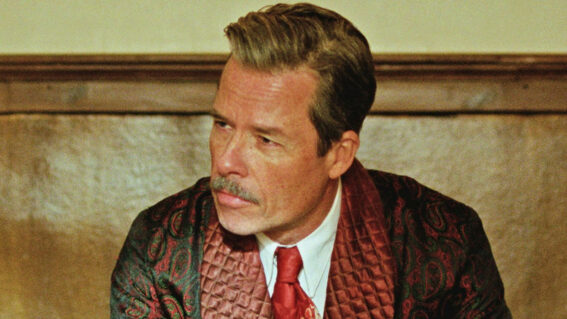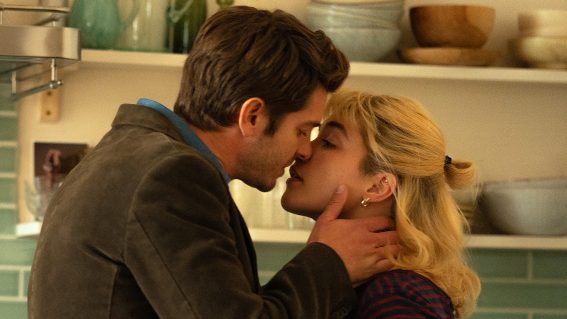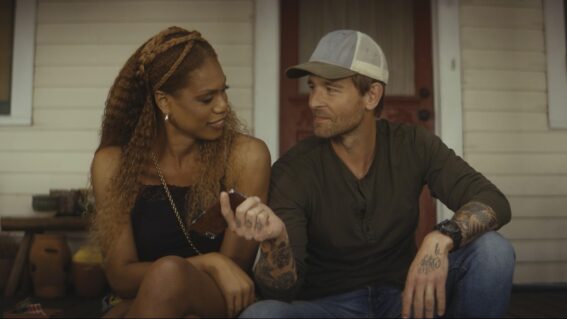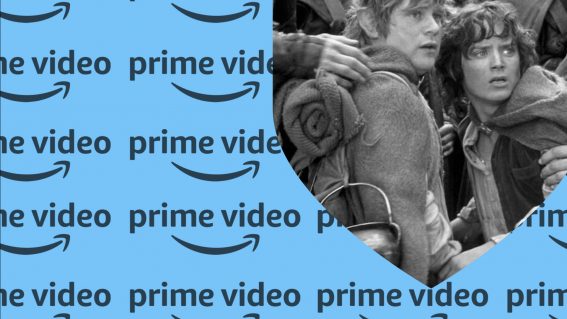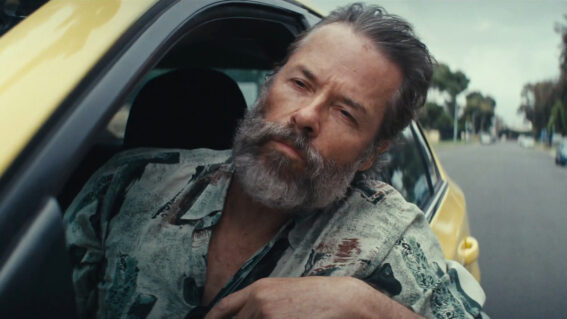The genius of Uncut Gems and the other films of the Safdie brothers
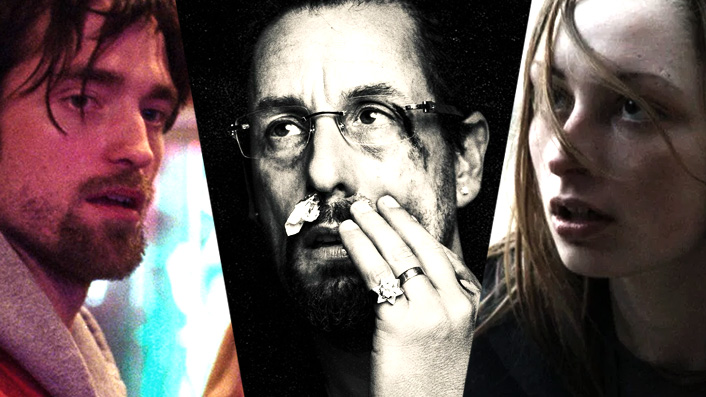
Adam Sandler delivers the best performance of his career in Netflix’s riveting drama Uncut Gems. It is the latest film from writer/director siblings the Safdie brothers, who have a very striking style, says critic Luke Buckmaster.
What a piece of work! Howard Ratner is the incorrigible protagonist of Uncut Gems: a bettin’, schemin’, wheelin’-dealin’ New York jeweler played with uncomfortable aplomb by Adam Sandler. The film (available on Netflix; see all movies on Netflix) comes from sibling writer/directors Benny and Josh Safdie, who specialise in combining gritty streetside verisimilitude with adrenaline-pumping atmosphere. The Safdie brothers’ work has been dubbed “Scorsesean” many times, this film marking the formalisation of that relationship – with Marty himself on board as executive producer.
Describing Sandler’s performance as the epoch of his acting career thus far may not mean all that much, given the nadirs have been so brutally low, and his crimes against the cinematic art form so many and so varied. But still. What a damn good performance.
Sandler’s grubby incarnation of Ratner is expertly awful, nailing every aspect of this insufferable man’s character so well he makes you want to wail like a banshee and throw things at the screen. Howard is a classic love-to-hate character; somebody you want to slap in the face with a cold fish.
Uncut Gems follows a few intense days in his life, which revolve around the protagonist’s acquisition of a precious opal (referenced in the title) and what he plans to do with it. In two words: sell it. Ratner however is the kind of greedy shyster who makes even a simple plan terribly complicated and problematic.
Things start to go south when Ratner spearheads one of a soon-to-be-growing list of ‘WTF is he thinking’ moments. He lends the gem to basketball superstar Kevin Garnett (playing himself) who is convinced it grants him special powers. Leaving his championship ring as collateral, Howard – that idiot, that fiend, that self-sabotaging rascal – then pawns this ring, makes some big bets, and – well, hell, see it yourself. There are twists and turns and mounting, gooseflesh-raising tension.
Sandler’s baggage-shedding performance and the Safdie’s bold style makes a thrilling synthesis. One of their signature elements is intrusive synthesiser-heavy scores, which rise and tremble with an almost cosmic quality. If the Safdie’s gritty images keeps their work grounded, on a visual level, their soundscapes go the other way, flying to the moon and back.
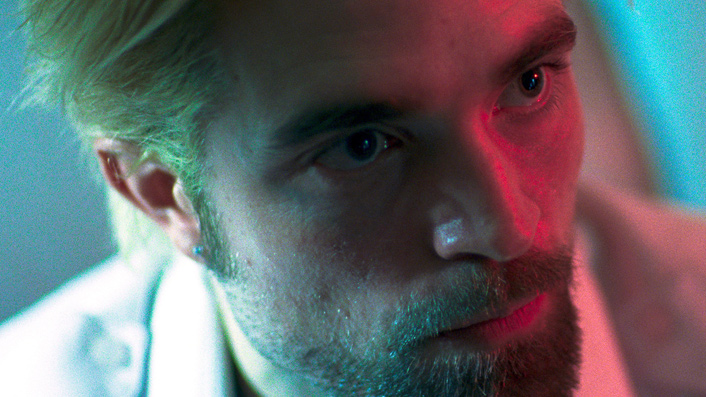
Robert Pattinson was dynamic in Good Time
One of the factors that got Sandler interested in working with them was Robert Pattinson’s much talked about starring role in the nervy robbery-gone-wrong crime drama Good Time (2017). The directors trade the post-GFC, ravished-economy allegory of other contemporary American films – such as the excellent heist drama Hell or High Water – for Trump era despondency, baking into the experience a festering feeling that there is nothing left for people to fight for. Except maybe a few duffel bags of cash on the way down.
Brothers Connie (Pattinson) and Nick (Ben Safdie) get one of those bags from a bank job. But there are, shall we say, complications. One concerns Nick’s unspecified learning disability, which won’t allow him to graduate to criminal mastermind any time soon.
With the Safdies’ cameras following the pair in close-up, sweat-smelling proximity, the brothers sprint away with the dosh but get separated. There are bust-outs and break-ins. The overarching tone is a hard-boiled kind of verisimilitude.

Heaven Knows What is a powerful portrait of nogoodniks
Robert Pattinson reportedly became interested in the brothers Safdie after watching their previous New York-set feature, 2014’s Heaven Knows What. The protagonist is a young heroin addict, Harley (Arielle Holmes), navigating life on the peripheries of society. She is surrounded by all kinds of nogoodniks: dopers, addicts, bullies, thieves, lowlives, ruffians and no-hopers; the kind of cretins one expects to find smoking crack pipes and picking scabs at a Jesse Pinkman-hosted house party.
Heaven Knows What sounds like a downer, and to some extent it is: not exactly ideal viewing material for a first date. But the Safdies’ gripping directorial style gives this picture of disaffected youth an electric quality, very much spurred on by their aforementioned affection for synthesizer soundtracks.
The film’s rough, scuzzy aesthetic feels like a first feature – although it is actually their second, following 2009’s Daddy Longlegs (which I am yet to see). Comparing Heaven Knows What to Good Time and Uncut Gems, one can observe a clear evolution of their style. Their budgets got bigger, their narratives more developed, their films more star-driven.
But each of these Safdies productions feel very much, indeed, like a Safdie film; there’s no question that they are distinctive artists. One of Heaven Knows What’s most memorable moments is its opening credits sequence, an arresting occasion capturing an altercation between mentally unwell women in a psychiatric ward. The patients yell and scream but we don’t hear them. The sound of the dialogue is completely drowned out by non-diegetic music: another ground-rattling synth score.
That score is a wall of noise, separating the audience from the interior world of the characters. At the same time the Safdies draw us in, with intentionally unglamorous cinematography and their great attention to human details. The humans they capture do not tend to be decent people. Some of them are downright dirtbags. One in particular: starts with an “H”, ends with a “Ratner.”

